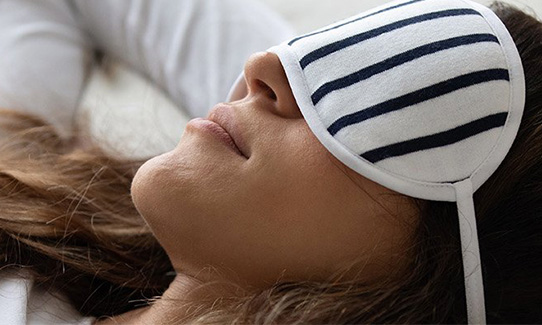

Feb 14 2022
Sleep’s Effect on H.E.A.R.T.S.


Summary
Sleep apnea puts an enormous strain on your heart because of repetitive drops in oxygen level & surges in blood pressure.
As a young child, you may have been encouraged to refrain from using specific words as part of your vocabulary.
As you grew into adulthood, you learned terms (such as “cancer,” “Alzheimer’s disease,” “ALS”) that you hope to never have to face nor learn the full meaning.
Thanks to advances in treatment options, sleep apnea (pauses in breathing during sleep) no longer belongs on your dreaded list. Sleep apnea is closely linked to many forms of cardiovascular disease, so please consider discussing any sleep apnea related risks and/or symptoms with your provider.
Sleep apnea puts an enormous strain on your heart because it causes repetitive drops in your oxygen level that result in surges of your blood pressure, even as you sleep. This cycle can be especially stressful to your cardiac system and can contribute to declining cardiac health.
Heart Risks
Sleep apnea hurts your heart by increasing the risk of:
H – Heart Failure: Middle-aged men with sleep apnea are 58% more likely to develop heart failure
E – Elevated Blood Pressure: 30-40% of people with hypertension have sleep apnea
A – Atrial Fibrillation: The risk of A-fib is two to four times higher in those with sleep apnea
R – Resistant Hypertension: Up to 85% of people with uncontrollable hypertension have sleep apnea
T – Type 2 Diabetes: About seven in 10 people with diabetes have sleep apnea
S –Stroke: Individuals with untreated sleep apnea are twice as likely to have a stroke
Cardiac-related conditions primarily associated with sleep apnea are hypertension, arrhythmias, heart failure, heart valve problems, cardiovascular diseases (such as plaque buildup causing narrowing and/or blockages that may cause a heart attack or stroke), diabetes and obesity.
Individuals with congestive heart failure commonly have an abnormal breathing pattern that is more difficult to recognize. This abnormal breathing pattern is a type of sleep apnea that can have profound effects on the cardiopulmonary system by causing low oxygen levels, abnormal heart rhythms and changes in mental status. Treatment for all types of sleep apnea can improve your overall health, cardiac function and prognosis, as well as reduce your risk of heart problems.
Sleep Apnea Risks
Talk to your doctor about your risk for sleep apnea if you experience:
- Loud, irregular snoring
- Excessive daytime sleepiness
- High blood pressure
- Congestive heart failure
- Morning headaches
- Gasping or choking during sleep
- Pauses in your breathing while sleeping
- Difficulty going to sleep or staying asleep
- Sleeping at inappropriate time (while driving, talking, etc.)
- Poor concentration
- Memory loss
- Irritability
- Depression
Additional risk factors that increase your risk of having sleep apnea include:
- Obesity (body mass index of 30+)
- Narrow airway
- Large neck, tongue or tonsils
- Recessed jaw/significant overbite
To help address any warning signs or risk factors you have, your doctor may refer you to a board-certified sleep medicine physician for further evaluation.
Evaluate your health risks and any symptoms to help decrease your risk of H.E.A.R.T.S.!


Tracy Hamilton, CCSH, RRT-SDS, RPSGT, RST
Tracy Hamilton, CCSH, RRT-SDS, RPSGT, RST, is a sleep navigator with North Mississippi Medical Center’s Sleep Disorders Center. Tracy is certified in Clinical Sleep Health and is a Registered Respiratory Therapist with additional sleep disorders specialties. After five years of prior respiratory and sleep experience, Tracy joined NMMC in 2001.
NMMC's Sleep Disorders Centers help people overcome sleep apnea, narcolepsy, chronic insomnia and other sleep disorders.

Subscribe to Our Newsletter
Like this content and want to get more? Sign up for True North, the health and wellness newsletter from North Mississippi Health Services!

Subscribe to Our Newsletter
Like this content and want to get more? Sign up for True North, the health and wellness newsletter from North Mississippi Health Services!

Nurse Link®
Not sure if you need Urgent Care or the ER? Call 1-800-882-6274 anytime to speak directly to a registered nurse and get immediate answers. Using computerized medical protocols, nurses direct callers to the most appropriate treatment. Our nurses are available 24 hours per day, seven days per week.